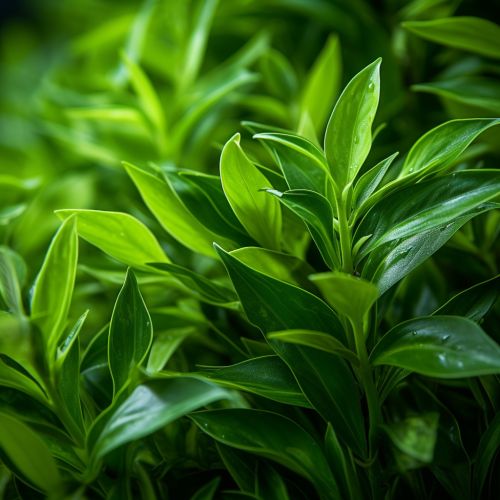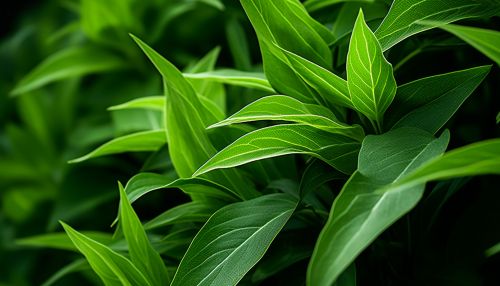Plant physiology
Introduction
Plant physiology is the branch of botany concerned with the functioning, or physiology, of plants. Closely related fields include plant morphology (structure of plants), plant ecology (interactions with the environment), phytochemistry (biochemistry of plants), cell biology, genetics, biophysics, and molecular biology.


Fundamental processes
Photosynthesis
Photosynthesis is the process by which plants, some bacteria, and some protistans use the energy from sunlight to produce sugar, which cellular respiration converts into ATP, the "fuel" used by all living things. The conversion of unusable sunlight energy into usable chemical energy is associated with the actions of the green pigment chlorophyll.
Respiration
Respiration in plants is strikingly different from the process in animals. Plant respiration is a series of reactions that uses glucose and oxygen to produce carbon dioxide and water, as well as the energy needed for other processes.
Transpiration
Transpiration is the main process of water movement within plant tissues. Water is constantly evaporating from the upper parts of plants. This causes a negative pressure (suction) in the xylem that pulls water from the roots and up the stem.
Growth
Plant growth is the process by which the plant increases in size. A plant's ability to grow is influenced by a number of factors, including the availability of resources (such as light, water, and nutrients) and the presence of suitable environmental conditions.
Plant hormones
Plant hormones (also known as phytohormones) are chemicals that regulate plant growth. The term "phytohormone" was coined by Thimann in 1948. The major classes of plant hormones are auxins, gibberellins, ethylene, abscisic acid, and cytokinins, each of which has its own effect on plant growth and development.
Plant biochemistry
Plant biochemistry is the study of the chemical processes used by plants. Some of these processes are used in their primary metabolism like the photosynthetic Calvin cycle and crassulacean acid metabolism. Others make specialized materials like the cellulose and lignin used to build their bodies.
Plant cell biology
Plant cells are eukaryotic cells that differ in several key aspects from the cells of other eukaryotic organisms. Their distinctive features include: a large central vacuole enclosed by a membrane, a cell wall composed of cellulose and hemicellulose, plastids, and a unique method of cell division involving the formation of a cell plate or phragmoplast.
